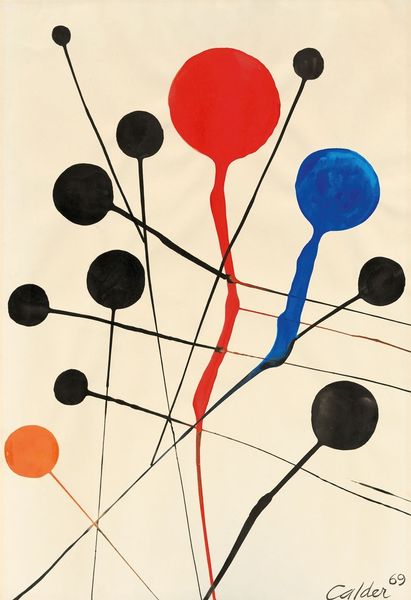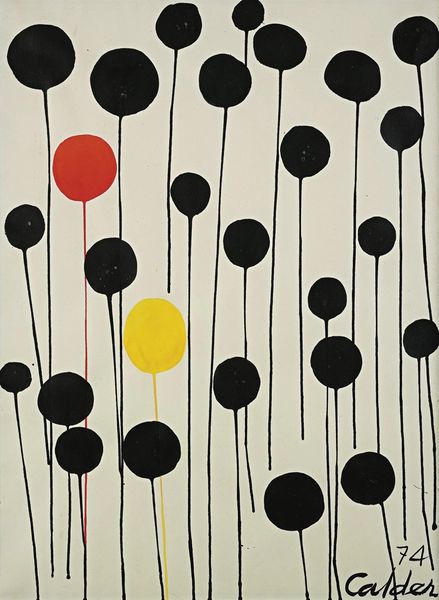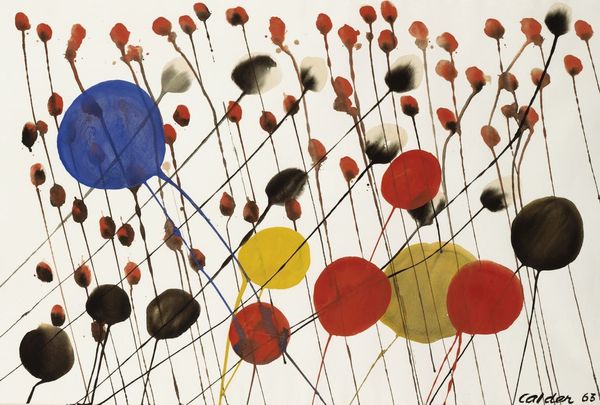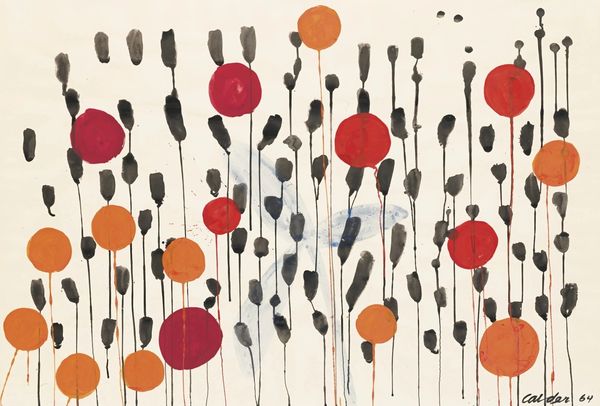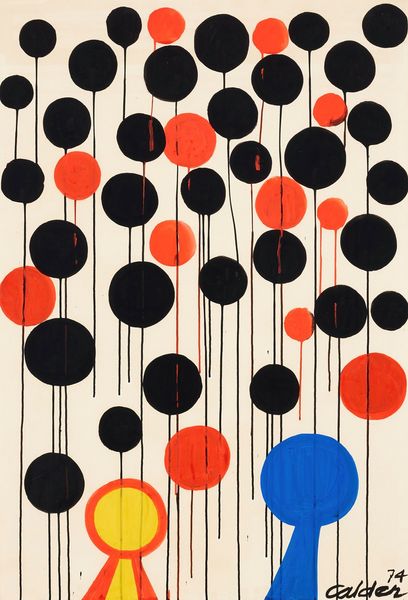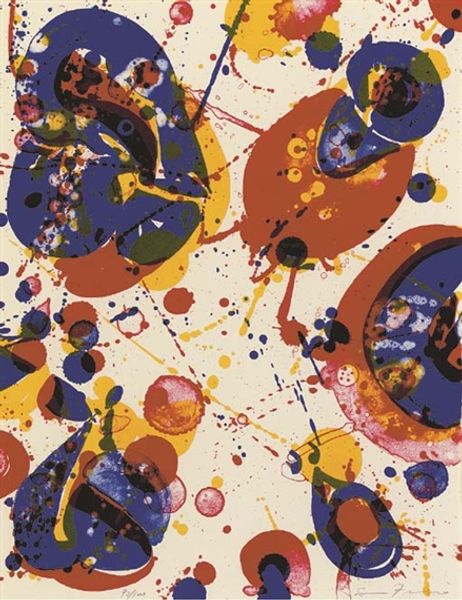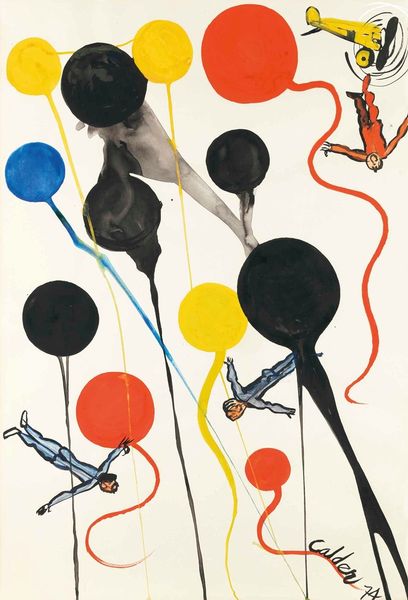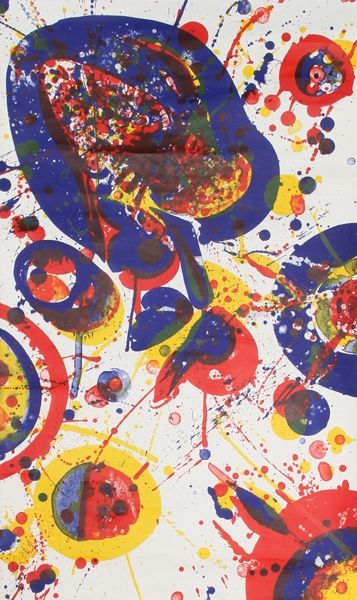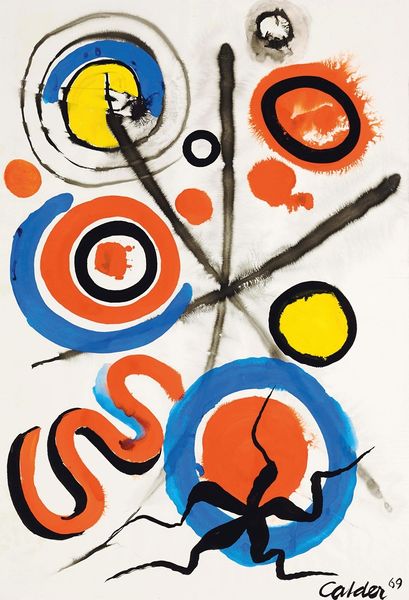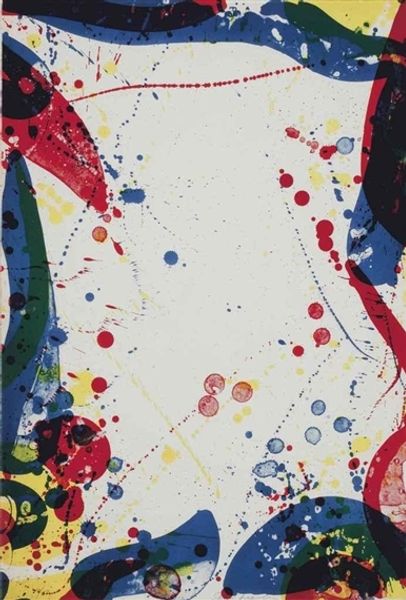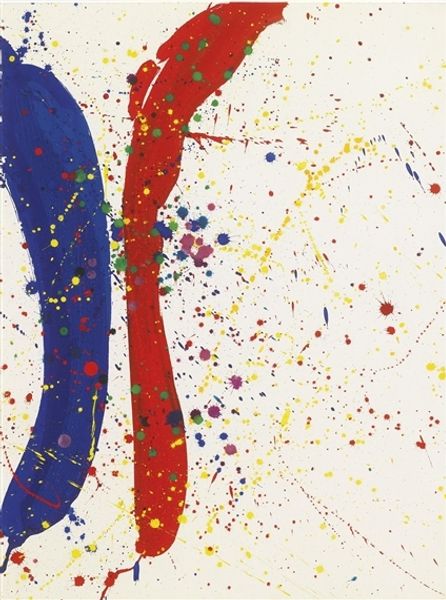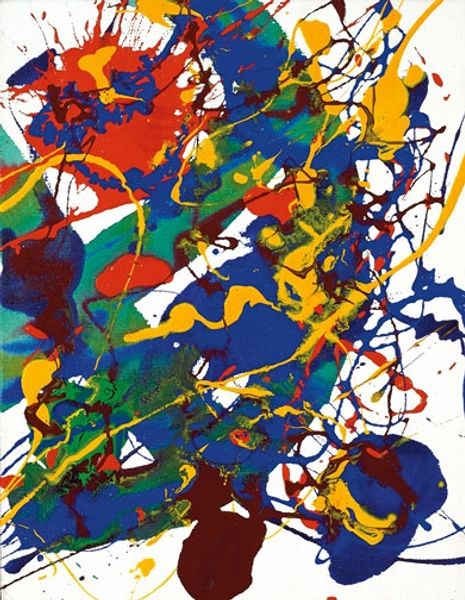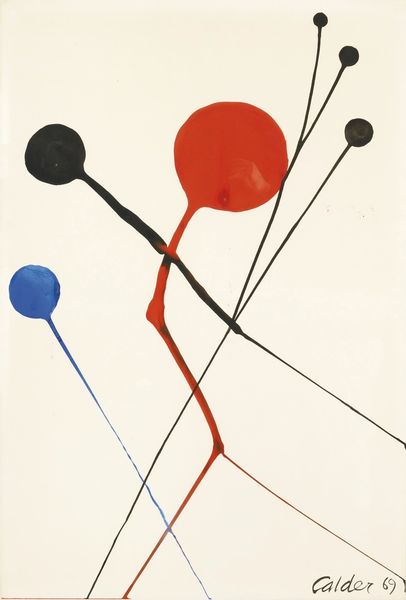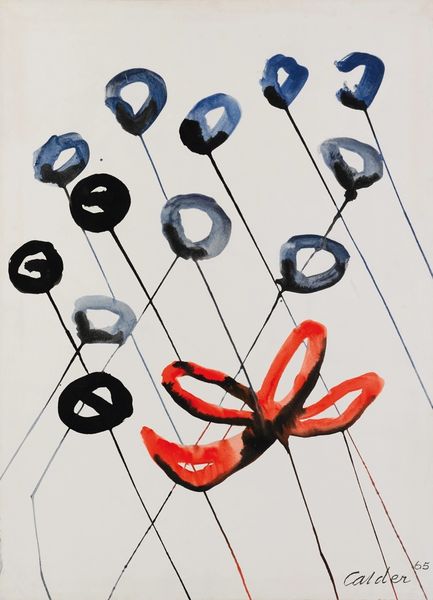
Copyright: Modern Artists: Artvee
Curator: Let’s turn our attention to “Brambled Orbs,” a 1974 acrylic on canvas work by Alexander Calder. Editor: Wow, it hits me right away. Sort of playful, yet there's a darkness to those heavy black circles, like storm clouds gathering. Curator: Precisely, and situating this work within the context of 1970s abstract expressionism, we can appreciate how Calder engages with—and gently subverts—the prevailing ethos of heroic individualism. Notice the flattened perspective and limited palette; how do those formal choices intersect with larger conversations around power, visibility, and artistic agency? Editor: The drippy, imperfect edges are what get me. It's almost anti-monumental, in a really charming way. Like, here are these serious shapes, but they're kinda clumsy too. Blue and red threads meander through. Were these works referencing mid-century geopolitical tensions or anxieties, by any chance? Curator: Indeed, if we examine the piece through a postcolonial lens, we can view the seemingly random placement of colours as a metaphor for global power dynamics at that moment in history, think about the energy crisis... Also think of this artwork not existing in a vacuum but in conversations about decolonisation that shaped social, political, artistic and economic movements across the world. Editor: Wow, that’s a great connection! To me it’s the asymmetry which evokes freedom from structure. What if it's simply celebrating creative chaos, pure experimentation? Curator: Of course, intuitive response has merit too. Looking at how these geometric forms interact—some connected by bold lines, others floating independently—I suggest that Calder proposes fluidity of identity, refusing rigid categorisation. Editor: See, that is beautiful. Thanks. This artwork does that magic thing, lets you see the world anew each time. Curator: Precisely, its visual dynamism invites ongoing renegotiation, inspiring the imagination towards decolonial and inclusive horizons.
Comments
No comments
Be the first to comment and join the conversation on the ultimate creative platform.
